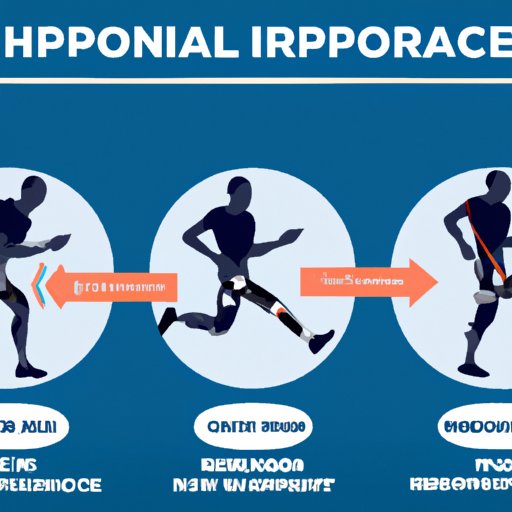Introduction
Hip replacement surgery can be a life-changing procedure for those living with chronic hip pain and limited mobility. For runners, however, the question of when and how to safely resume running can be a significant concern. This article will provide a comprehensive guide to help runners navigate the recovery process and return to running in a safe and healthy manner.
Getting Back on Your Feet: How to Safely Resume Running After Hip Replacement Surgery
One of the essential things to keep in mind when resuming running after hip replacement surgery is to build strength and endurance gradually. Starting with short walks and gradually increasing the duration, pace, and terrain can help ease the body back into the rhythm of running.
Additionally, runners must modify their running technique to reduce the impact on their hips. Shortening the stride, landing on the midfoot, and avoiding excessive knee lift can help protect the hip joint while running. It is essential to listen to your body and make adjustments as needed.
Before embarking on running post-surgery, it is crucial to consult with a physical therapist or doctor. They can help determine the appropriate time to start running and guide you through the recovery process to prevent injury.
A Runner’s Guide to Recovery: What to Expect After Hip Replacement Surgery
Recovery timelines for hip replacement surgeries may vary depending on the individual and the extent of the procedure performed. Most people can expect to be back to normal walking six to twelve weeks post-surgery.
To transition from walking to running safely and effectively, it is essential to follow a gradual progression plan. Starting with lower-impact activities such as cycling or swimming can help build cardiovascular endurance without putting stress on the hips. Once you are comfortable walking, progress to slow jogs on level ground before gradually introducing hills and speed work.
It is normal to experience setbacks as you progress through recovery. Swelling and soreness may persist, and you may have days where your hip feels weaker than others. It is important to take it slowly and not push your body beyond its limits.
Should You Run After Hip Replacement Surgery? The Pros and Cons
Running after hip replacement surgery can have numerous benefits, such as improved cardiovascular health, weight management, and improved mental health. However, there are also risks involved in resuming running too quickly or without proper preparation.
Factors to consider before deciding to return to running include the type of surgery performed, your age, overall health, and the extent of the damage to the hip joint before the surgery. Additionally, runners with pre-existing conditions such as osteoporosis or arthritis may need to consider alternative forms of exercise to prevent further damage to their hips.
Make sure to have an open and honest discussion with your physical therapist or doctor before deciding whether or not to return to running.
Hip Deterioration in Runners: Prevention and Treatment Options
Hip deterioration is a common problem experienced by runners, particularly those who engage in high-impact activities such as running. To prevent hip damage, it is essential to implement proper warm-up and stretching techniques before and after running. Cross-training, such as weight lifting or swimming, can also help strengthen the hip muscles and improve overall running performance without putting stress on the joints.
In cases where hip deterioration has already occurred, surgical and non-surgical treatment options may be available. Non-surgical options such as physiotherapy, cortisone injections, or anti-inflammatory medication can help alleviate pain and discomfort. In more severe cases, surgical procedures such as hip arthroscopy or hip resurfacing may be necessary.
The Mental Game of Returning to Running After Hip Replacement Surgery
Returning to running after hip replacement surgery can be just as much of a psychological challenge as a physical one. Many runners feel frustrated, anxious, or even depressed about the prospect of not being able to run for an extended period. It is important to keep a positive outlook, stay motivated, and celebrate even the smallest victories throughout the recovery process.
Many runners who have undergone hip replacement surgeries have returned to running at a high level. It is essential to remember that each person’s recovery process is unique, and progress may take time.
Conclusion
Overall, returning to running after hip replacement surgery requires patience, guidance, and a commitment to a gradual recovery process. Consistent communication with your doctor or physical therapist, as well as strategies for protecting your hips during running, can help you resume running safely and effectively.
Always remember to listen to your body, be patient with yourself, and celebrate each milestone along the way. With dedication and perseverance, returning to running after hip replacement surgery is achievable.
(Note: Is this article not meeting your expectations? Do you have knowledge or insights to share? Unlock new opportunities and expand your reach by joining our authors team. Click Registration to join us and share your expertise with our readers.)
